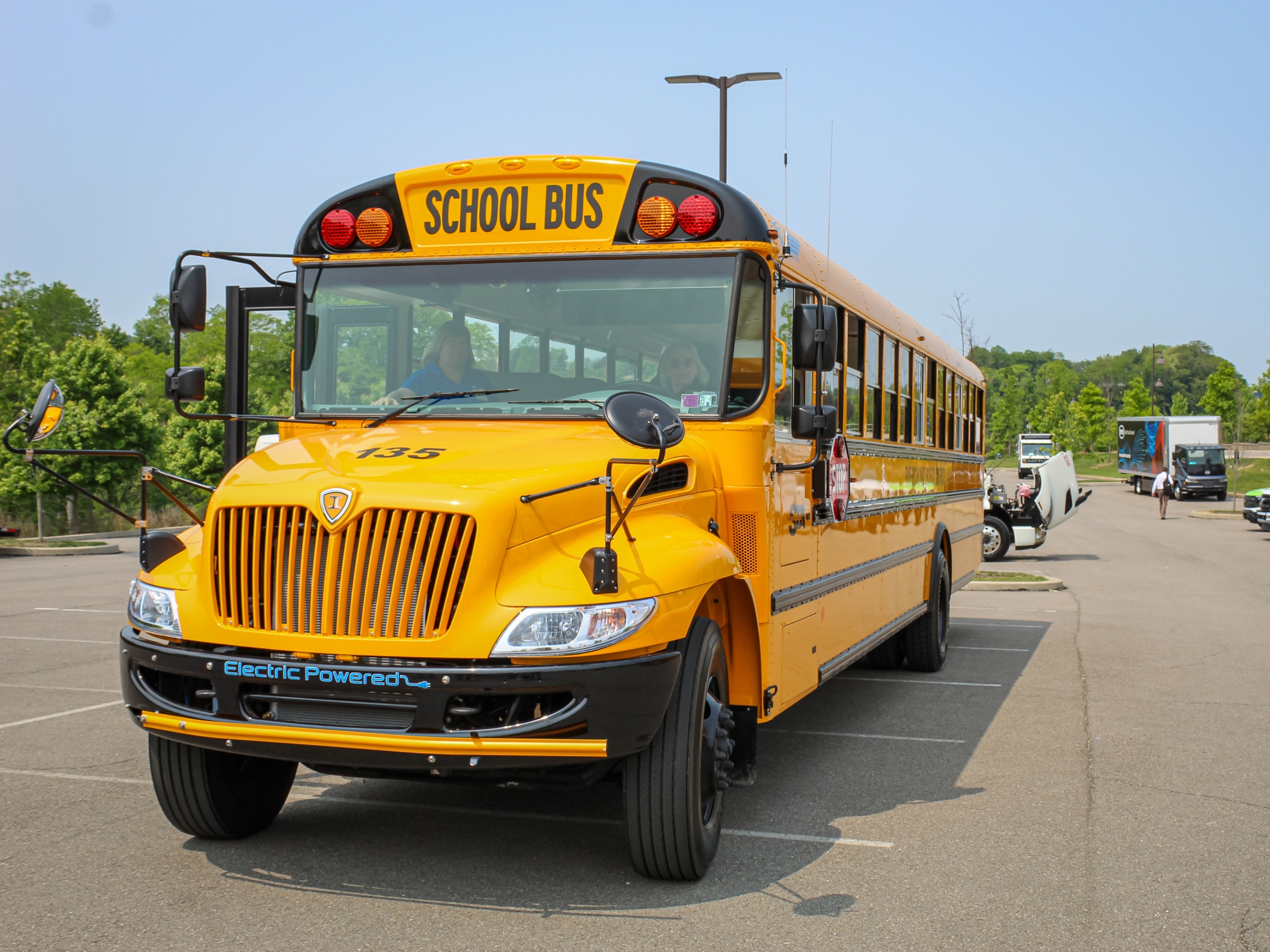Clean Electric School Buses Are Hitting the Road
Published:

Most of the school buses used in America today run on diesel fuel. Exhaust from diesel engines, however, contributes to local air quality issues and has a negative effect on human health, particularly for children. To avoid these issues and save on operating costs, school districts are starting to make the switch to electric buses (e-buses) that run on electricity instead of diesel or gasoline.
Benefits of electric school buses
One of the biggest benefits of e-buses is reduced emissions. According to the EPA, e-buses have zero tailpipe emissions and significantly reduced greenhouse gas emissions compared to diesel school buses.
With fewer moving parts, e-buses are also 50% quieter than their diesel counterparts and provide smoother rides. Both riders and the wider community benefit from reduced noise pollution. For drivers, e-buses are easy to operate, with no shifting required.
Cost savings is another benefit. School districts could save thousands a year in fuel and reduced maintenance costs. These savings could really add up over the lifetime of the bus.
Funding for clean school buses
Despite these benefits, e-buses are typically more expensive to purchase. According to the National Renewable Energy Laboratory, the upfront cost of an e-bus is about 50% more expensive than a standard diesel bus and requires new charging infrastructure to power the buses. Fortunately, newly available funding opportunities are helping school bus operators lower these upfront costs.
The Infrastructure Investment and Jobs Act, passed in 2021, provides $5 billion over five years for the purchase of zero-emissions electric school buses and the supporting charging infrastructure. The U.S. Environmental Protection Agency (EPA) will disperse the money to state and local governmental entities or other qualified contractors responsible for school busing over five years (through 2026) through the EPA's Clean School Bus Program.
Schools making the switch
School districts around the country and in the Pittsburgh region are beginning to upgrade their bus fleets to electric with support from EPA’s Clean School Bus Program.
In 2024, seven school districts in Allegheny County received a total of $35.3 million through the federal program: Bethel Park, Moon Area, Pine-Richland, Pittsburgh Public, Plum Borough, South Fayette, and Woodland Hills. As a result, 118 new electric school buses will soon be hitting the roads in the Pittsburgh region. DLC proudly supported several of these school districts with their applications to the EPA Clean School Bus Program and will now partner with them to ensure they have the electric service needed to power their buses.
If your bus fleet is aging, or if you're looking for ways to reduce operating costs and improve the air quality in your school district, consider making the switch to e-buses. Through DLC’s Electric Fleet Advisory Service and Fleet Charging Program, DLC can help you assess your existing school bus fleet, create a roadmap to electrifying your school buses, and reduce the upfront costs associated with installing charging infrastructure.
For example, through its Fleet Charging Program, DLC partnered with Student Transportation of America to install the charging infrastructure for the region’s first electric school buses serving Pine-Richland School District. Learn more about that project here and contact electricvehicles@duqlight.com to begin your school bus electrification journey..
